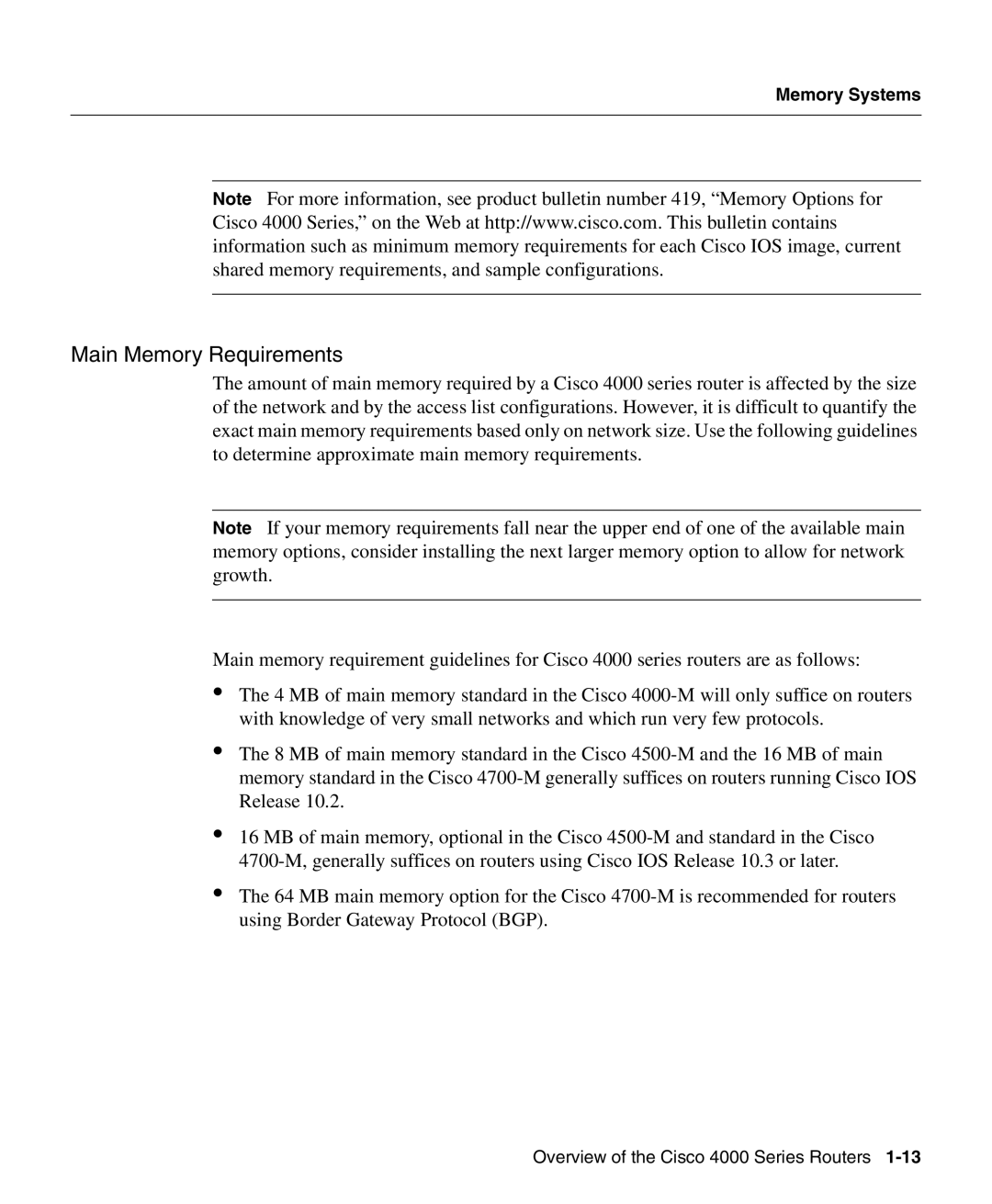4000 specifications
Cisco Systems 4000 Series routers are a robust and versatile line of devices designed to meet the demands of modern enterprise networks. These routers are tailored for high performance and scalability, making them suitable for both branch offices and data centers. The 4000 Series introduces a wide array of features and technologies aimed at enhancing connectivity, security, and operational efficiency.At its core, the Cisco 4000 Series provides advanced routing capabilities with support for a variety of routing protocols. This versatility enables businesses to seamlessly integrate with existing network infrastructures while setting the stage for future growth. The routers support both traditional WAN connectivity and modern software-defined WAN (SD-WAN), allowing businesses to utilize a mix of technologies according to their needs.
One of the standout features of the 4000 Series is its advanced security capabilities. Integrated security features help protect the network from threats while ensuring compliance with various regulatory requirements. Cisco's security technology includes built-in firewall capabilities, intrusion prevention systems (IPS), and encrypted traffic analysis, helping to safeguard sensitive data as it traverses the network.
The Cisco 4000 Series routers also excel in their support for virtualization technologies. With the capability to run multiple virtual machines and services concurrently, businesses can optimize resource usage and reduce hardware costs. This virtualization capability is facilitated by Cisco's Integrated Services Router (ISR) architecture, allowing for the efficient deployment of applications such as unified communications, collaboration tools, and cloud services.
In terms of performance, the 4000 Series routers are equipped with high-performance multi-core processors that provide significant throughput and low latency. This efficient processing power ensures that they can handle large amounts of data traffic, making them ideal for bandwidth-intensive applications like video conferencing and cloud computing.
Management and monitoring of Cisco 4000 Series routers are streamlined through Cisco DNA Center, which offers a centralized platform for automation, analytics, and assurance. This platform allows IT teams to automate network provisioning and monitoring, thus reducing the complexity associated with managing modern networks.
In summary, Cisco Systems 4000 Series routers represent a powerful solution for businesses seeking to modernize their network infrastructure. With features such as advanced routing and security, virtualization support, and enhanced management capabilities, these routers are designed to adapt to the evolving needs of enterprises in an increasingly digital world.

